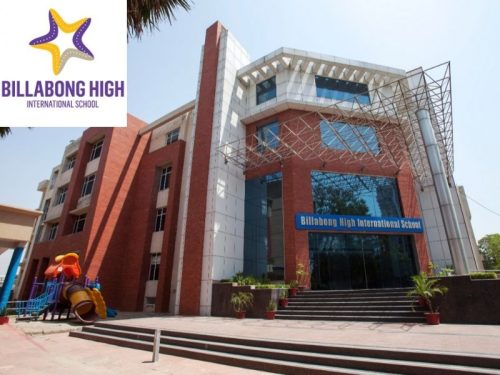No products in the cart.
COVID19 Challenge: Billabong High International School, Noida online learning success
“The coronavirus pandemic has led to the closure of schools and institutions worldwide, thus causing a major disruption in learning. We at BHIS are working day and night to make online classes more accessible for parents and students. There is no denying the fact that the concept is new for many but it is the need of the hour. Advancements in technology will now allow students to study online entirely while collaborating with peers, watching lectures and participating in topic-specific discussions.“
– Sharmila Chatterjee, principal of the CBSE affiliated Billabong High International School, Noida, top-ranked co-ed day school in Delhi NCR.
Ranked #5 co-ed day school in Noida in the latest EducationWorld India School Rankings 2019-20, the CBSE-affiliated Billabong High International School (BHIS), Noida “envisions to create an educational system of learning that brings out the human excellence in every child”. With schools across the country and the globe having to shut down untimely due to the Covid-19 pandemic outbreak, BHIS has been efficiently leveraging digital technology and collaboration tools to ensure students continue to learn while staying safe at home. Amid the ongoing nationwide lockdown, Billabong mentors have been curating an innovative and engaging virtual learning solution for students in the following ways:
Online teacher training
Every mentor at BHIS believes that traditional means of teaching-learning is not the only way for true learning to take place. So with a new zest for moving into the less explored paradigm of virtual learning, the teachers honed their skills in creating digital learning resources and PowerPoint presentations, conducting live virtual classes and using video conferencing tools.
Virtual classroom
Teachers and students log into the virtual classroom using video conferencing tools. Teachers use presentations to explain the concept to the students. Similar to a physical classroom at school, online classes are conducted according to a fixed time-table which is shared with the students two to three days in advance. Students have a full schedule as specific time slots are allocated for all subjects. Once the online class is over, teachers share their presentations, learning materials and YouTube links via WhatsApp broadcast groups for offline learning.
Creating digital content
Apart from learning resources shared on Whatsapp groups, notes, PowerPoint presentations, worksheets, assignments and learning links are uploaded prior to the online sessions on the school’s website. Assignments are given regularly in form of comprehensions and solving of worksheets for strengthening of concepts.
Co-curricular education
Besides academic subjects, the school has also introduced online classes for robotics, yoga, physical education, music, dance and art to enable holistic development of students. Peer learning programmes and digital presentations are an integral part of these sessions.
Teachers track the daily attendance of the students. This attendance counts towards their overall classroom attendance for the academic session. Important virtual sessions are also recorded to enable students who miss attending the class due to unavoidable reasons to access them later.
“Our virtual learning solution has enabled even the very young children in primary school to use technology for learning. The school is in constant touch with the parents for feedback which helps us continuously improve the quality of our online teaching-learning process. The school counsellor also shares tips with the parents on how to cope with Covid19 lockdown situations at home, especially with children around. BHIS has also shared a helpline number, as a part of coronavirus response, on which students and parents can contact the school counsellor for any query or concern,” says Chatterjee.






 “The coronavirus pandemic has led to the closure of schools and institutions worldwide, thus causing a major disruption in learning. We at BHIS are working day and night to make online classes more accessible for parents and students. There is no denying the fact that the concept is new for many but it is the need of the hour. Advancements in technology will now allow students to study online entirely while collaborating with peers, watching lectures and participating in topic-specific discussions.“
“The coronavirus pandemic has led to the closure of schools and institutions worldwide, thus causing a major disruption in learning. We at BHIS are working day and night to make online classes more accessible for parents and students. There is no denying the fact that the concept is new for many but it is the need of the hour. Advancements in technology will now allow students to study online entirely while collaborating with peers, watching lectures and participating in topic-specific discussions.“








Add comment